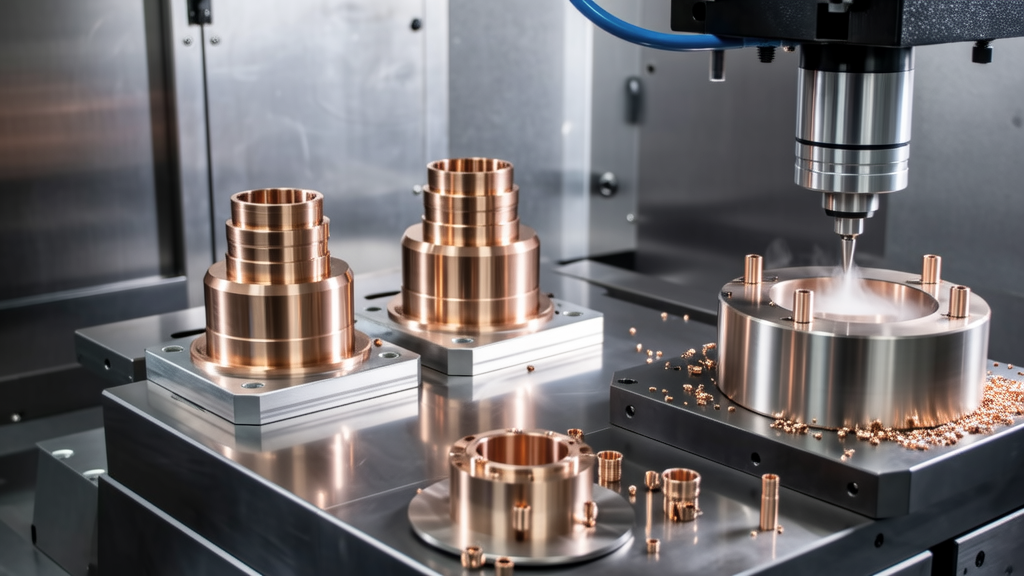Understanding Precision and Quality Control
First off, precision is everything in CNC machining. When you’re looking at a factory, ask about their tolerance levels. Typically, a great factory should work within ±0.01 mm precision. Now, I personally visited a factory last summer that’s known for its precision work. They had robust quality control measures in place, which included regular calibrations of their machines and a rigorous process for inspecting the materials used. Trust me, you need to make sure that any factory you’re considering can showcase similar practices.
Here’s a handy checklist of quality control measures you should inquire about:
Having this information will give you a clearer picture of their capabilities.
Technology and Equipment Used
Next up is the technology they employ. CNC machining technology evolves quickly, and a factory that doesn’t keep up could leave you in the dust. Look for factories with modern machinery—preferably with 5-axis CNC machines for aluminum enclosures. I recall helping a friend find a factory, and we were impressed by one that streamlined operations with advanced software that allowed for real-time monitoring of production. This not only increased efficiency but also ensured that any problems were dealt with immediately.
Here’s a table to highlight what you should be looking out for regarding their equipment:
| Equipment Type | Benefits | Average Lifespan | Cost Consideration | Maintenance Needs |
|---|---|---|---|---|
| CNC Mill | Versatile; good for complex shapes | 10+ years | Mid to High | Regular services |
| 5-Axis CNC Machine | Improves accuracy and reduces time | 8-12 years | High | Frequent calibrations |
These aspects of technology and equipment tell you not just about current capabilities but also give insights into future readiness.

Production Capacity and Delivery Times
Lastly, let’s talk about production capacity. If a factory has the world’s best machines but can’t keep up with your demand, they aren’t the right choice. It’s like having a race car but no driver; it won’t take you anywhere. Make sure to ask about their lead times and batching practices.
For instance, I once worked with a factory that promised fast turnarounds, but their quality suffered during peak seasons. A good factory will be honest about their workload and will have measures in place to manage peak times without sacrificing quality. Keep track of their delivery times over time, especially if you opt for just-in-time inventory methods.
Gather all this information, and don’t hesitate to talk to their past clients if possible. It’s like asking for references, which can provide solid insight into their reliability and performance. With these factors in mind, you’ll be in a much better position to assess CNC machining skills effectively and make an educated choice for your aluminum enclosure projects.
What should I look for in a factory’s precision standards?
When assessing a factory, you should definitely inquire about their tolerance levels. A high-quality factory typically works within ±0.01 mm precision. This level of precision is crucial for ensuring that your aluminum enclosures fit perfectly and meet your specifications.
Additionally, ask about their quality control measures. A factory that conducts regular machine calibrations and has a detailed inspection process will likely be more reliable in delivering precise parts.

How important is technology in CNC machining?
Technology plays a huge role in CNC machining. If the factory you’re considering has up-to-date machinery, particularly 5-axis CNC machines, you’re in good hands. These machines allow for more complex shapes and improved accuracy.
In my experience, factories that employ the latest software for real-time monitoring tend to stay ahead in quality and efficiency. This means any potential problems can be addressed immediately, keeping your production on track.
What factors contribute to a factory’s production capacity?
Several factors can influence a factory’s production capacity, including the number of machines, their capabilities, and the workforce’s skill levels. A factory that has ample modern equipment and skilled workers will likely have higher capacity.
It’s also important to know their lead times. A factory that can deliver parts in a timely manner, even during peak seasons, is essential for keeping your projects on schedule. You want to ensure they’re not just fast but also maintain quality under pressure.
How do I verify a factory’s past performance?
One effective way to verify a factory’s reliability is by asking for references or testimonials from past clients. It’s always a good idea to connect with those who have worked with the factory before.
Inquire about their experiences, especially regarding on-time delivery and adherence to quality standards. This first-hand insight can be invaluable in assessing whether this factory can meet your needs.
What types of quality control measures should factories implement?
A solid quality control process is critical for any CNC machining factory. You should look for procedures such as regular machine calibrations, material inspections, and final product checks before shipping.
Sometimes, great factories will use statistical process control, which helps identify any variations in machining processes before they turn into bigger issues. This proactive approach is something to keep an eye out for when evaluating potential partners.



